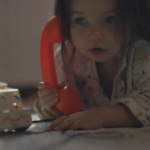DASANI’s bottle caps’ pioneering innovation supports The Coca-Cola Company’s World Without Waste vision to make all packaging fully recyclable by 2025 and to make bottles and cans with 50% recycled material by 2030
Coca-Cola North America is bringing a new twist to sustainable packaging by using caps made from recycled high-density polyethylene (HDPE) plastic – a beverage industry first – on DASANI bottles.
Reyes Coca-Cola Bottling recently piloted and commercialised the resealable closures, which include 30% recycled content, on 20-oz., half-litre and 1-litre PET bottles of DASANI throughout California. The pioneering innovation supports The Coca-Cola Company’s World Without Waste vision to collect and recycle the equivalent of a bottle or can for every one it sells globally by 2030; to make all packaging fully recyclable by 2025, and to make bottles and cans with 50% recycled material by 2030.
“We’ve continued to make progress on long-term goals to reduce waste. Even through this challenging pandemic, we’ve been able to introduce innovations to help improve the sustainability of our packaging,” said Bruce Karas, VP of Environment, Sustainability & Safety, Coca-Cola North America.
The process of producing plastic closures like twist-off caps is challenging from both a manufacturing and regulatory standpoint. Threading inside an FDA-approved cap must fit perfectly with threading on the neck of the bottle to ensure an air-tight seal.
Coca-Cola North America and Coca-Cola Bottling Sales and Services worked closely with resin and closure suppliers to develop a cap made with recycled HDPE – the type of plastic used to make milk jugs and detergent containers – whilst meeting all technical and food safety requirements.
“This is not a small achievement,” Karas added, noting that most caps in the market are produced with virgin plastic. “Closures and labels are often missed in the overall context of sustainable packaging, but they’re just as important as bottles and cans. Using recycled content in caps is a clear example of how World Without Waste is challenging us to rethink existing models.”
Suzana Keller, chief procurement officer, Coca-Cola Bottlers’ Sales and Services Company (CCBSS), added “We couldn’t be any more excited about this work, as it brings to our consumers the full innovative capacity of the Coca-Cola system – from a sustainability perspective. Additionally, we will continue our work by raising recycling awareness within the communities we serve in order to improve collection rates. This will bolster our efforts by allowing us to further leverage post-consumer curbside recycled materials.”
The breakthrough development won the coveted Plastics News’ 2020 Plastics Caps & Closures Innovation Award for being the first beverage closure made from post-consumer recycled content.
The California pilot also included a monolayer label for DASANI bottles with 40% less plastic than existing labels. These new labels separate more easily in the recycling stream, which means bottles can be more easily recycled and used to make new bottles.
These developments will drive demand for recycled material, supporting a circular, job-creating economy.
“Every time recycled material is used, we are reducing our carbon footprint and helping create an end-market for our PET bottles and our HDPE caps, which is very positive,” said Karas.
Coca-Cola North America has continued to invest in community recycling during the pandemic to drive increased collection of its bottles and cans. The company has provided grants to local organisations like the Conservation Corp. of Long Beach and I Love a Clean San Diego in California, and national collaborations with The Recycling Partnership and The Closed Loop Fund to support curbside collection programmes.
In 2019, Coca-Cola joined the American Beverage Association in establishing a US$100m/£77.6m fund to support recycling infrastructure and educational programming for communities in 10 major cities.
“As people spend more time at home, we are recognising an opportunity to do even more to help ensure that people have the means to recycle at the curb,” Karas said.
DASANI has been at the forefront of sustainable packaging innovation since 2009 with the launch of PlantBottle, the first fully recyclable bottle made partially from plants. In 2018, the brand became the first major water brand to debut a package-less water dispensing unit with DASANI PureFill. DASANI plans to remove the equivalent of 1 billion virgin PET bottles from its US supply chain in the next five years.



Average Rating